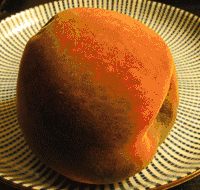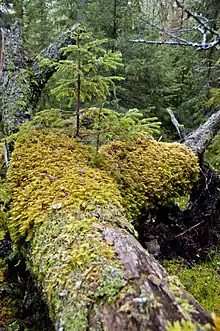Decomposition
Decomposition, or rotting, is what happens to livng things when they die. It also happens to organic material of any kind, such as foodstuffs. The reason it happens is that organic molecules are stores of building blocks and energy. Whatever breaks down organic material uses the energy and building blocks to reproduce itself.


One whole kingdom of living things does nothing except break down organic material: the fungi. Their life style is called 'saprophytic', because they break down and intake organic matter through their cell walls.
A large part of decomposition is done by microbes, especially bacteria. Also common is digestion of flesh by maggots. If insects lay eggs, maggots hatch and begin to feed on the body's tissues.
Lastly, decomposition can take place by inorganic processes. All organic materials break down over time because they are in higher energy states than ordinary inorganic materials.
| Proteins | Carbohydrates | Lipids |
| Proteoses, peptones, polypeptides, and amino acids | Glucose | Free fatty acids (saturated and unsaturated) |
| Phenolic substances and gases | Organic acids and alcohols | Salts of fatty acids |
| Organic acids and decarboxylation products | Water, carbon dioxide | Aldehydes and ketones |
| Nitrogen and phosphorus | Gases | Adipocere |